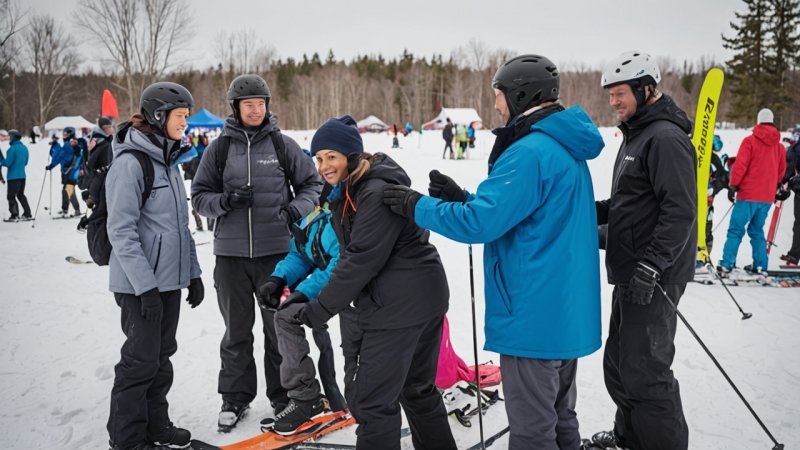Winter sports provide an exhilarating experience but participating in advocacy and community initiatives can amplify the benefits immensely. By engaging with others who share a passion for sports like skiing, snowboarding, or ice skating, individuals not only enhance their skills but also foster a sense of community and responsibility.
One of the primary benefits of participating in winter sports advocacy is the opportunity for skill development. Engaging in community initiatives often involves workshops and training sessions led by experienced athletes. These sessions provide valuable insights into safety practices, performance enhancement techniques, and the latest advancements in winter sports technology. Participants can learn about the importance of protective gear such as helmets and visors, ensuring that safety is prioritized while they hone their skills.
Moreover, community initiatives often promote inclusivity, welcoming individuals of all ages and skill levels. This inclusiveness encourages newcomers to try winter sports, potentially igniting a lifelong passion. The supportive environment fosters camaraderie, which can lead to lasting friendships. These social connections can enhance the overall enjoyment of the sport, making participation more enjoyable and fulfilling.
Advocacy can also lead to improved infrastructure and resources for winter sports. When community members come together to voice their needs, they can influence local governments and organizations to invest in better facilities, safety equipment, and accessibility options. This can result in safer environments for athletes and enthusiasts alike, further promoting participation.
Additionally, being part of advocacy efforts helps raise awareness about the environmental impacts of winter sports. Participants can engage in initiatives that focus on sustainability, encouraging practices that protect the natural landscapes where these sports take place. This not only helps preserve the environment but also instills a sense of responsibility among athletes to be stewards of the earth.
Participating in winter sports advocacy can also improve mental health. Engaging in physical activity during the winter months is known to combat seasonal affective disorder (SAD) and contribute to overall well-being. Community initiatives often include group activities that encourage exercise and socialization, both of which are beneficial for mental health.
In conclusion, participating in winter sports advocacy and community initiatives offers numerous advantages, from skill development and safety awareness to fostering inclusivity and environmental responsibility. By engaging in these activities, individuals not only enhance their athletic performance but also contribute positively to their communities, creating a vibrant and supportive environment for winter sports enthusiasts.






